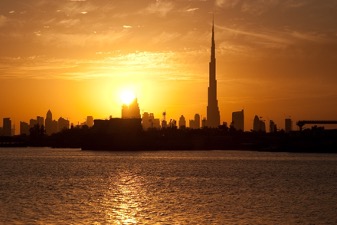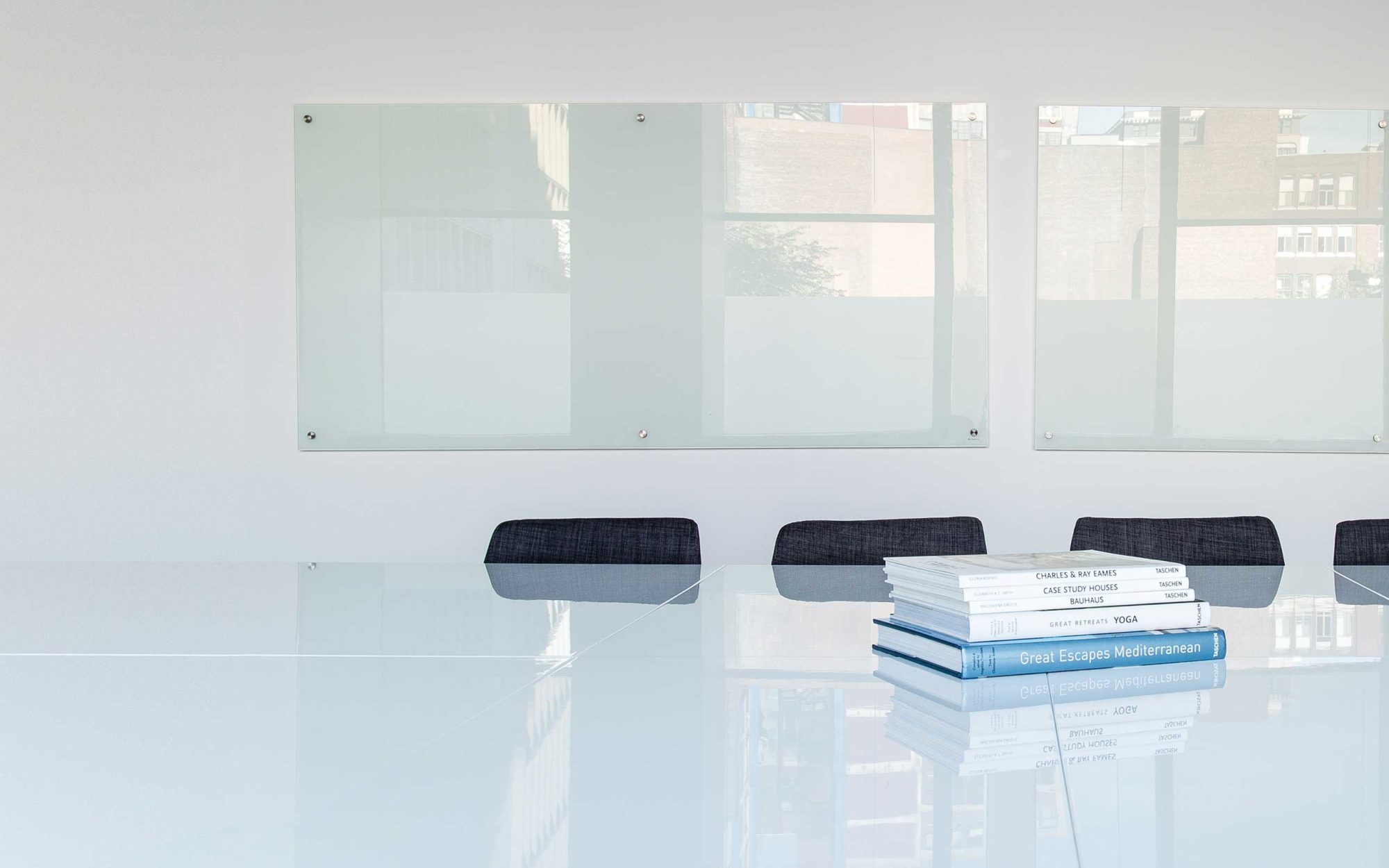
When you live in a city for long enough as an expat, you end up feeling so part of it that you can lose sight of the adventure that drove you there in the first place; what was once alien becomes familiar, what was at first challenging, becomes routine. This retrospective diary is an attempt to explain the experience of being an expat in three stages: confusion, conquest and… contemplation.
Dubai, the city that became my home for 9 years almost by accident, can be a very difficult place to get used to at first. And not least because of the stinking heat and humidity in Summer. From the total reliance on private transportation to the insanely expensive and turbulent rental sector, the place really is very different in so many ways. But the other thing they don’t tell you in the guidebook is how hard you work there. When I arrived in Dubai in 2008, the British newspapers were full of stories of the city’s excess and hedonism. The world had just entered one of the worst recessions in generations and Dubai was portrayed at the time as a sort of 21st Century Sodom and Gomorrah at odds with the financial meltdown being experienced by other countries. Now don’t get me wrong, Dubai was for me an incredibly interesting and fun place to live in (eventually, anyway) but you had to earn that fun with a lot of hard graft.
On more than one occasion, I resorted to buying underpants at my local supermarket.
One abiding memory I had was the fact that I didn’t need a TV, chair or cooking utensil of any description in my apartment for the first 6 months of being there due to the huge workload and hours spent at my new workplace, pretty much seven days a week. I basically worked and slept on my only piece of furniture, my bed, without any time to buy anything. Ever. On more than one occasion, I resorted to buying underpants at my local supermarket due to not having a washing machine or the time to get them cleaned. Thanks Choitrams Supermarket, you were a life saver! (Full of Goodness).
 (The only chair I had was by the pool)
(The only chair I had was by the pool)
However, the weirdest thing about this was how normal it all felt at the time and how strange it was to think about it in retrospect; let’s just say the owner of the first company I worked for wasn’t a big fan of a work/life balance. Basically, I had flown thousands of miles to be someone’s new bitch and I was buying underpants from a supermarket. Not exactly what I had in mind when I left London to live the Dubai dream. But what was worse was any advice I offered to my new slave master usually fell on deaf ears. This caused a great deal of, yes you guessed it, confusion (see what I did there?).
Dubai soundtrack number 1: Ball of Confusion by The Temptations.
Which brings me to another perplexing thing about professional life in Dubai and one that serves as a warning to anyone looking to work there. Although you are basically hired as an ‘expert’ because you bring with you years of experience from your home country, Dubai was (or maybe still is) very entrenched in its own ways. Now I am not the only person who has said this. I had friends in fields as diverse as Engineering, Hospitality, Architecture and Finance. They all said the same thing; they have flown me out here, paid me a generous salary and they don’t want my advice. Very odd indeed.
…you kept your head down, played along and trousered as much money as possible.
So just to recap. They pay well but don’t listen to you. Sounds pretty good to me. It basically meant that you kept your head down, played along and trousered as much money as possible. Sounds simple right? Well yes and no.
Obviously, the challenge for anyone working in a city as diverse as Dubai is the cultural mix. Now this is a positive and enriching experience when visiting a place for a short while but not so good when you are working in the middle of it day after day. Over 150 languages are spoken in Dubai and that, coupled with each country’s cultural quirks makes for a challenging, confusing and at times exhausting daily routine. Take for example the Indian attitude to hierarchy. Indian managers are expected to be tyrannical, direct and bullish (Although I’m sure there must be some exceptions). Therefore, young Indian workers see you as weak if you are at all reasonable and flexible. I know some people might see this as a gross generalization, but I can only speak from my own experience.
So, this brings me back to my boss who hired me when I first flew out there. In my previous 15 years of experience I had never had to tolerate such an egotistical, tyrannical psychopath as the one I had started to work for and I am sure the young Indian crew he gave me to manage, expected me to behave in exactly the same way towards them. When I didn’t, they weren’t sure what to think. So now we get on to language…
Everyone in Dubai is expected to speak at least some English and they get along with their own special version of it there. The name is Dinglish. A portmanteau word combining Dubai and English. But in Dubai, language alone is not the only barrier to day to day confusion, but when confusing language conflicts with culture. Referring back to my point about management styles, I remember telling two members of my team “We have a lot of work to finish next week, would it be possible for you to come in this weekend to get it done?” They turned to each other confusingly and then turned back to me and one said bluntly “No it wouldn’t be possible because I want to spend the weekend with my wife and family”. Although good standards of English existed in Kerala, clearly rhetorical questions didn’t exist in Malayalam. The only thing that was clear was that I hadn’t been “Indian boss” enough. Over time, we found a way round these issues and the team ended up being superstars.
So in summary, I had a nightmare boss, my team were a bunch of shirkers and I still had no furniture. It was time for a rethink. After a meaningful chat (or was it a Chaat?), my boss and I decided to part company. Relieved, I decided to enjoy some of what Dubai had to offer while my visa was in limbo. The swimming pool beckoned, and this became my place of meditation and reflection until the next adventure began. With time off for good behavior, I actually had a chance to socialize, and the swimming pool became my place to do this. Hooking up with a lovely Danish couple I was suddenly thrust into an endless maelstrom of parties, soirees, desert trips and booze quests. Dubai has booze? I hear you say. Does Sheikh Mo keep panthers? Well, I don’t know about the panthers but what I do know is that although the UAE is a Muslim country, alcohol is not in short supply here. Whenever Brits back home have asked me about Dubai, this subject was never far from the conversation. “Sounds great but what about the booze?”. “Don’t they chop your head off if you are caught with a tinny of Heineken under your mattress?”. “Aren’t you tortured if your breath smells of Glenlivet?”. “Don’t they track your family down and eat them”. Well I hate to disappoint you, but Dubai is designed around night life and drinking.
We want to create a world class city for business and tourism, but we are a Muslim country. The answer? Make the hotels the size of Coventry and fill them with pubs!
When developing Dubai, the Emiratis had a dilemma; we want to create a world class city for business and tourism, but we are a Muslim country. The answer? Make the hotels the size of Coventry and fill them with pubs! By the time I arrived in 2008, every hotel had at least three to four bars with the addition of numerous dining options. And the standard of food and drink wasn’t the only good thing about them. From the interior design all the way through to the lavish suites and glorious tropical landscaping, you will never in your life sip a beer in nicer surroundings.
 (Hat. Sunglasses. Cash. Let’s hit the desert!)
(Hat. Sunglasses. Cash. Let’s hit the desert!)
But what about if you wanted to just pop to the shop for a couple of cans or a bottle of wine? All sorted. If you acquired a liquor license you could buy booze to be consumed at home from one of the two legal Emirati off-licence operators (One of which was called, strangely A&E!). However, the word “legal” has a very stretchy meaning in Dubai and not least when talking about the contradictions over liquor consumption. Take for example the out-of- town booze super stores. Or commonly known as The Nuclear Option. Somewhere along the line, the rulers of this fine kingdom realized that a lot of money could be made from expats who like to drink but that not everyone wanted, or could afford to sip a hotel-poured Stella that costs the earth (as of 2017 £12 a pint). The solution, the aforementioned out-of-town (or in this case, out in the desert) booze super store. Nothing quite prepares you for the sheer size of these places. Imagine a gigantic Carrefour purely devoted to alcohol. Every time you passed through the doors the sound of harps and angels greeted you (in my mind, at least). And because it was essentially a wholesale operation, the choice was mind boggling. Everything you found in a five-star hotel bar was to be found here; from over a hundred exotic rums to artisan gins, a whole fucking wall of whiskey stretching the length of a football pitch! Toto we’re most definitely not in Kansas anymore and thanks to my Danish friends, I had found Valhalla in the desert. These early years were the ones I remembered the most and how fond they were.
Dubai soundtrack number 2: Walking on a Dream by Empire of the Sun
By late 2008, I got a new job and was on my way to the next work adventure. However, storm clouds were brewing in the form of the credit crunch. The tough conditions experienced by the west were finding their way to the UAE and eventually all the new friends that I had made, were packing their bags to go back to Europe. After 8 months, I was back on my own by the pool again. That is the other thing that you get used to there. Everything is in constant flux.
“…a downturn is when your neighbour loses their job, a recession is when you lose your job”.
It’s funny how sounds remind you of certain periods of your life. Every Friday morning, I would wake up to the dawn chorus of the scraping, squeaking sound of packing tape being unfurled and stuck to packing boxes echoing down the communal hall of my apartment building. It meant another expat worker had been fired and was forced to move their entire family back home. On Dubai Eye, the city’s talk radio station, I remembered one presenter wittily clarifying what the difference between a downturn and a recession was. He said, a downturn is when your neighbour loses their job, a recession is when you lose your job. For me, this comment will forever chime with the sound of packing tape.
 (Gardening leave, poolside)
(Gardening leave, poolside)
Dubai soundtrack number 3: Amelia by Joni Mitchell
To be continued…

